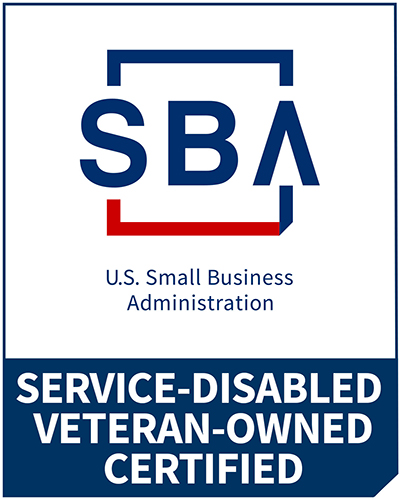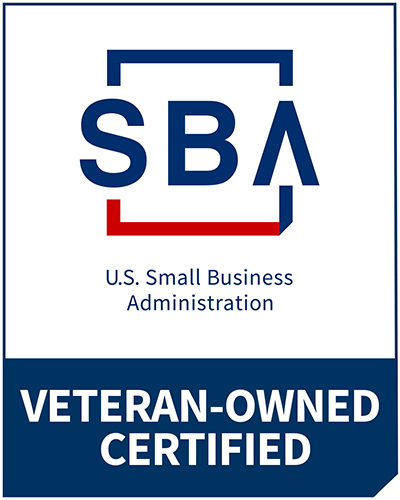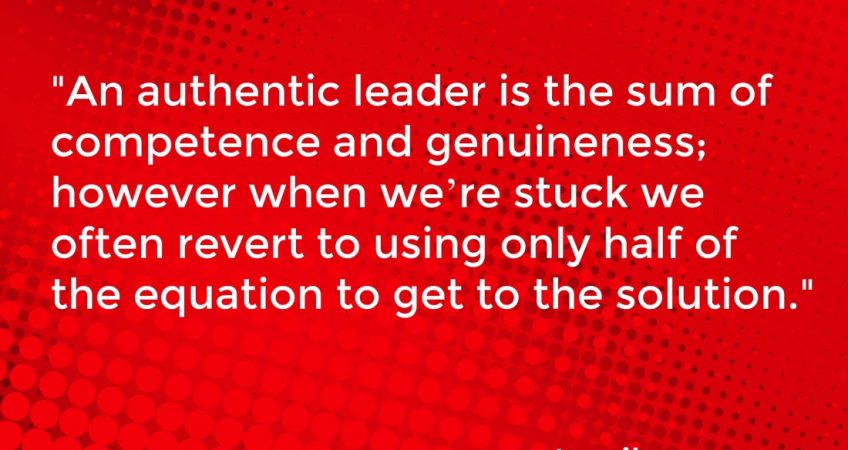Leadership is about the choice to be authentic. Popping a pill to temporarily relieve a symptom is easier than working to create holistic health. It’s the same with leadership: Unless we do the work, we can only hope to project an image; we can’t actually lead. And without our full commitment to lead, some portion of the full potential of the organization will remain dormant. In today’s environment, that’s not an option.
People in leadership positions sometimes cling to their comfort zones—working at what they already know how to do creates the illusion of effectiveness. Meanwhile, the organization is evolving, and the old range of competency is not enough. These managers keep trying to solve new problems with old methods. They move into entirely new circumstances using yesterday’s work modes. What they’re really doing is resisting change. Their leadership lacks authenticity. It is ineffective because it resists the truth about changing circumstances. Sometimes, the least effective thing to do is to do what we know. Personal mastery is a commitment to what we do not entirely know about ourselves; working on personal mastery leads us into more and more untapped potential. Unless we’re willing to truly learn about ourself—and then about the people and the organization around us—we cannot grow. And if we cannot grow, we cannot change.
Leaders sometimes seem to turn a blind eye to their own foibles while they spend time identifying the problems around them. We must be willing to change our work habits, our areas of expertise, and our relationships with others. We must become open to everything around us if we want to lead others to meaningful success. We must endure the discomfort of dealing with personal symptoms to achieve a new level of organizational health. Once we begin a quest for personal mastery, however, our efforts will start to lead change. Our leadership becomes more authentic. Instead of finding faults to fix, we look for potential to cultivate. Everything we do inspires others to do the same. We personify the success to which we are leading. Our leadership becomes authentic.
Most of us have leadership attitudes and behaviors. All of us have the potential to be leaders. Choice determines what happens to our potential. I remind clients that they already possess all the qualities they need to initiate and sustain change. They just have to choose to make these qualities their own, to practice these attitudes and behaviors consistently, day after day. That’s how we become more than managers in positions of authority. We become authentic leaders. An authentic leader is the sum of competence and genuineness; however, when we’re stuck, we often revert to using only half of the equation to get to the solution. Every time we rely on competence alone to solve a problem, we limit ourselves. We are simply managing.
Authentic leaders know they’re not likely to make progress over the long haul simply by managing. Competence is an attribute in anyone who contributes to the outcome. But it is a tool, not a direction. Sometimes, it’s not even a conscious process. Progress requires more. It requires evolution, choice, and discipline. Because leadership relies on groups of people working together, it requires genuiness. “genuiness” is harder to define and quantify than “competence,” but it is crucial for leadership. A person may be competent, but we’ve all heard of the executive who clings to his desk, doing the work without knowing how to engage others. This executive is usually surrounded by disgruntled employees. Disappointment and resentment permeate a work environment with an unwilling leader at the helm, because people want to be tapped. They want to contribute. They want to be committed. They want leadership. So, what steps can we take?
First, we need to understand ourselves better. We must grow conscious of ourselves and be ourselves rather than trying to be what we think a leader should look like. Second, we must commit to changing old habits, such as how we think, what we value, how we work, how we connect with people, how we manage frustration, how we learn, and what we expect from life. As we do this, we’ll see less projection and more transparency. There will be little posturing, little that is hidden or mysterious. Genuineness permits clarity. To be genuine is to be intelligent in a whole new way, one that moves beyond competence and creates direction. The more genuine we are, the more spontaneously we can move among competent persons who seek our direction. The capacity for this intelligence lies within us all. So, who will end up being the leader? It’s our choice to make.



